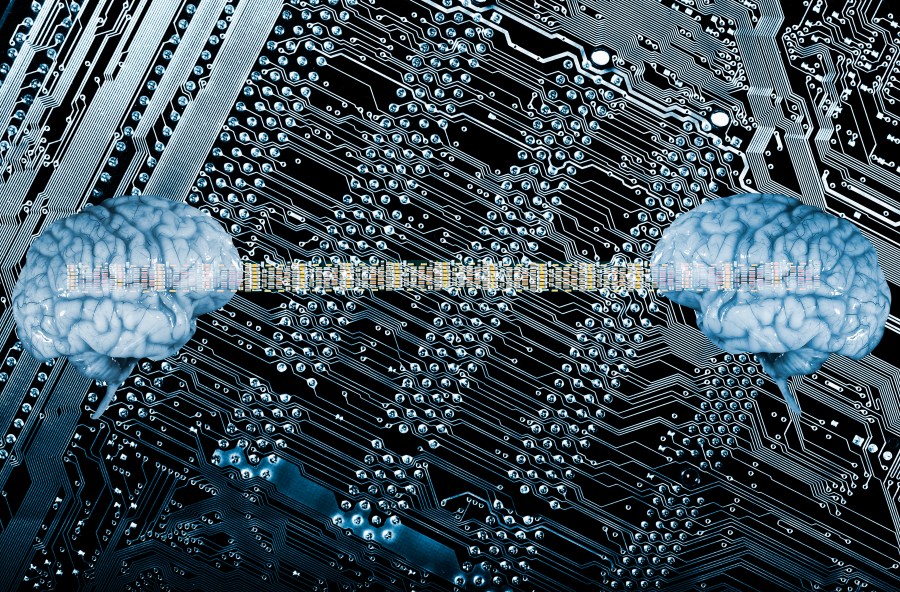HONOLULU (KHON2) — Nicole Cacal, the founder and CEO of Forbes Ignite, recently shared her insights on how artificial intelligence (AI) is reshaping our world and how schools and parents in Hawaiʻi can prepare children for careers in this AI-driven future.
Cacal’s expertise in innovation and technology makes her a valuable source of information on this topic.
AI and its impact
Cacal, who also runs a consultancy called Nicolecal.com, emphasized that AI is more than just a set of tools; it’s becoming an integral part of daily decision-making.
She explained that “AI is quickly moving from just being a set of tools to becoming a seamless part of how we make decisions every day.”
For instance, she described AI as a “smart assistant” that helps businesses analyze customer data and suggest ways to engage with them effectively.
In the future, AI will transform industries by making systems more personalized, empathetic, and responsive.
Cacal noted that AI could even change the retail experience by altering store layouts and product recommendations based on who enters the store.
Preparing for an AI-driven future
To thrive in an AI-dominated world, Cacal stressed the importance of adaptability and lifelong learning.
She said, “The ability to adapt and learn new skills will be crucial for staying relevant in the job market.”
While technical skills in AI are essential, she believes that emotional intelligence and creativity are equally important.
“AI is great at processing data, but it cannot replicate human creativity or emotional intelligence,” she noted. These human qualities will set individuals apart in an AI-enhanced workplace.
Cacal also emphasized the need for reskilling, especially in Hawaiʻi, to help workers transition into roles where they work alongside AI.
“Investing in reskilling is pretty critical so workers can transition into roles where they work alongside AI to achieve more than either could alone,” she said.
AI in education
When it comes to education, Cacal advocates for integrating AI in ways that enhance students’ critical thinking skills.
She likened AI to the calculator, which was once controversial but ultimately proved to be a valuable tool.
“Just as the calculator allowed us to do more, AI should be used to enhance students’ critical thinking skills,” she explained.
Cacal encourages students to show their work when using AI tools, similar to how they would in math, to understand and critique the information provided.
She also stressed the importance of teaching AI ethics from a young age.
“Teaching the ethics of AI from a very young perspective is essential because it’s not enough to just know how AI works; it’s also understanding its impact on society,” Cacal said.
A well-rounded education that includes technical skills, ethics, and cultural insights will prepare students for future careers.
AI’s role in Hawaiʻi
Cacal highlighted how AI can address Hawaiʻi’s unique challenges. For instance, AI-driven solutions can improve healthcare access in remote areas through telemedicine, reducing the need for residents to travel long distances for specialist care.
She also mentioned that AI can enhance education by tailoring learning experiences to individual needs, particularly in under-resourced rural schools.
In addition, Cacal pointed out that AI can help small businesses in Hawaiʻi compete with larger mainland companies.
“AI-driven business insights and customer relationship management tools can help small businesses in Hawaiʻi compete more effectively,” she said.
This can keep wealth within the local economy and support community-based growth.
Practical advice for students and schools
Cacal encourages students to seek out opportunities to apply AI in ways that benefit their communities.
“Any initiative should be tied back to the community at large,” she advised. Hands-on experience through internships and projects can help students understand how AI can solve local problems.
Building a strong network within the AI community, both locally and globally, is also crucial for opening doors to new opportunities.
She also advocates for interdisciplinary education.
Cacal believes that combining AI with courses in ethics, social sciences, and environmental studies will provide a well-rounded education.
“Interdisciplinary programs that combine AI with other fields will prepare students for the future,” she said.
Schools should encourage real-world projects and collaborations to help students apply their AI skills in practical settings.
Embracing diversity and critical thinking
Cacal emphasized the importance of diversity in AI development.
“We need more diverse lived experiences being taken into account to train these algorithms so that they are truly representative of the people they serve,” she said.
She encourages students to think critically and ask questions to develop their problem-solving skills.
Nicole Cacal’s insights provide a comprehensive view of how AI is changing our world and how we can prepare for an AI-driven future.
You can watch Cacal’s full interview in the video above. You can click here to learn more about Forbes Ignite.
By focusing on adaptability, lifelong learning, ethical considerations, and practical experience, schools and parents can help students thrive in this evolving landscape.
